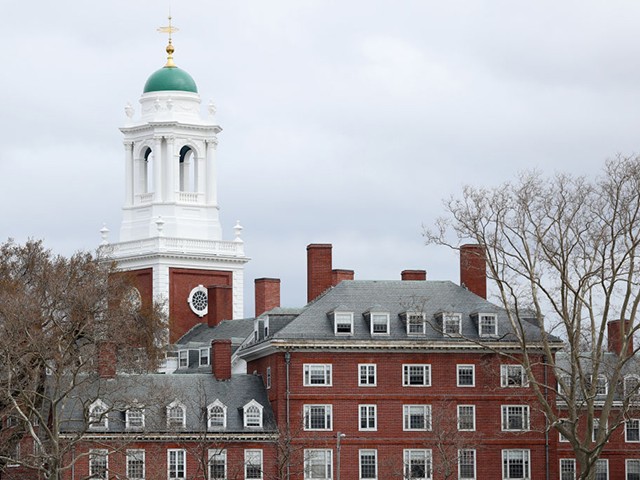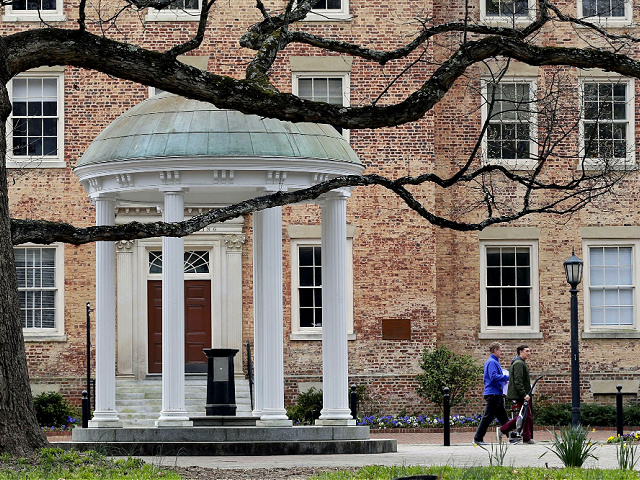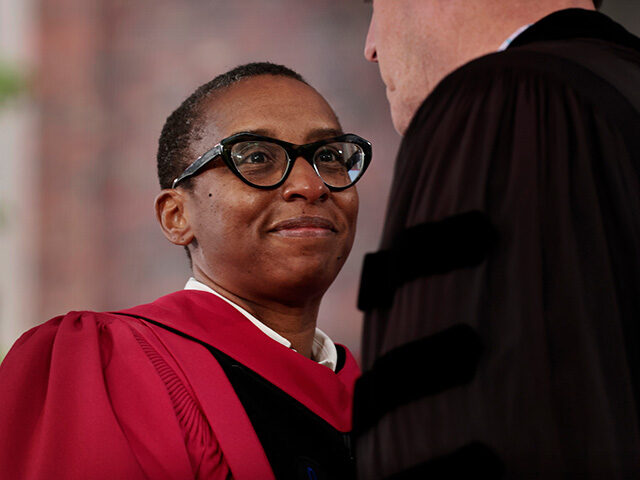Harvard University released a statement and a video address shortly after the Supreme Court delivered a ruling dashing the school’s race-based admissions process on Thursday, saying that while the school “will comply” with the decision, it does not change their belief that race should be considered in the admissions process.
“The Supreme Court’s decision on college and university admissions will change how we pursue the educational benefits of diversity — but our commitment to that work remains steadfast. It is essential to who we are and the mission we are here to advance,” Harvard University President-elect Claudia Gay said in a video statement.
“For nearly nine years, Harvard vigorously defended our admissions process and our belief that we all benefit from learning, living, and working alongside people of different backgrounds and experiences. We will comply with the Court’s decision; but it does not change our values,” she continued in part.
"The Supreme Court decision on college and university admissions will change how we pursue the educational benefits of diversity–but our commitment to that work remains steadfast." pic.twitter.com/XacKygEyii
— Harvard University (@Harvard) June 29, 2023
Gay also claimed that the Supreme Court’s decision could “mean the real possibility that opportunities will be foreclosed.”
“But at Harvard, it has also strengthened our resolve to continue opening doors. To our future students, know that we want you here. We are eager to welcome you to our community,” she said.
RELATED VIDEO — Biden on Affirmative Action Decision: “This is Not a Normal Court”:
White HouseThe statement from Harvard University leadership echoed a similar sentiment as Gay’s video address; however, school officials hinted at the future method in which they will still consider race in the admissions process.
“Today, the Supreme Court delivered its decision in Students for Fair Admissions v. President and Fellows of Harvard College. The Court held that Harvard College’s admissions system does not comply with the principles of the equal protection clause embodied in Title VI of the Civil Rights Act,” the statement reads. “The Court also ruled that colleges and universities may consider in admissions decisions ‘an applicant’s discussion of how race affected his or her life, be it through discrimination, inspiration, or otherwise.; We will certainly comply with the Court’s decision.”
Harvard to turn to essays, it says in an email – pic.twitter.com/byJbri5nMz
— Eliana Johnson (@elianayjohnson) June 29, 2023
“For almost a decade, Harvard has vigorously defended an admissions system that, as two federal courts ruled, fully complied with longstanding precedent. In the weeks and months ahead, drawing on the talent and expertise of our Harvard community, we will determine how to preserve, consistent with the Court’s new precedent, our essential values,” the statement reads in part.
“We write today to reaffirm the fundamental principle that deep and transformative teaching, learning, and research depend upon a community comprising people of many backgrounds, perspectives, and lived experiences,” they said. “That principle is as true and important today as it was yesterday. So too are the abiding values that have enabled us — and every great educational institution — to pursue the high calling of educating creative thinkers and bold leaders, of deepening human knowledge, and of promoting progress, justice, and human flourishing.”
The Supreme Court ultimately decided 6-2 in the Harvard case on Thursday that racial preferences in college admissions violate the Equal Protection Clause of the Constitution — a decision which has profound implications for racial preferences in many areas of law and public policy.
As Breitbart News reported, the Supreme Court had previously upheld racial preferences — euphemistically called “affirmative action” — in college admissions in the Bakke decision in 1978.

The Harvard University campus is shown on March 23, 2020 in Cambridge, Massachusetts. (Maddie Meyer/Getty Images)
“Since then, debates have raged about whether to use quotas, point systems, or other ways of favoring one applicant over another based on the color of their skin, with the Supreme Court upholding some approaches while trimming the sails on others. Conservatives have insisted for half a century that the Constitution does not allow any of those approaches,” Breitbart News’ Senior Legal Contributor Ken Klukowski wrote.
Students For Fair Admission filed a number of lawsuits against public and private schools. The Supreme Court eventually took two of them: a challenge to the admissions policy of the University of North Carolina (UNC) under the Fourteenth Amendment and a challenge to Harvard’s policy under Title VI.

In this March 18, 2020, file photo, people remove belongings on campus at the University of North Carolina in Chapel Hill, N.C. (AP Photo/Gerry Broome)
The majority opinion declared that “the Harvard and UNC admissions programs cannot be reconciled with the guarantees of the Equal Protection Clause.” It concludes:
The Constitution deals with substance, not shadows, and the prohibition against racial discrimination is leveled at the thing, not the name. A benefit to a student who overcame racial discrimination, for example, must be tied to that student’s courage and determination. Or a benefit to a student whose heritage or culture motivated him or her to assume a leadership role or attain a particular goal must be tied to that student’s unique ability to contribute to the university. In other words, the student must be treated based on his or her experiences as an individual — not on the basis of race.
Many universities have for far too long done just the opposite. And in doing so, they have concluded, wrongly, that the touchstone of an individual’s identity is not challenges bested, skills built, or lessons learned but the color of their skin. Our constitutional history does not tolerate that choice.
RELATED VIDEO — Khanna: Schools Will Have to “Move Away from Standardized Tests” if They Can’t Use Racial Preferences:
Justice Clarence Thomas joined Roberts’ opinion in full but also wrote separately to highlight the constitutional principle at stake:
In the wake of the Civil War, the country focused its attention on restoring the Union and establishing the legal status of newly freed slaves. The Constitution was amended to abolish slavery and proclaim that all persons born in the United States are citizens, entitled to the privileges or immunities of citizenship and the equal protection of the laws. Because of the second founding, our Constitution is color-blind, and neither knows nor tolerates classes among citizens.
The cases are Students for Fair Admissions v. Presidents and Fellows of Harvard College and Students for Fair Admissions v. University of North Carolina, Nos. 20-1199 and 21-707 in the Supreme Court of the United States.
Ken Klukowski contributed to this report.

COMMENTS
Please let us know if you're having issues with commenting.